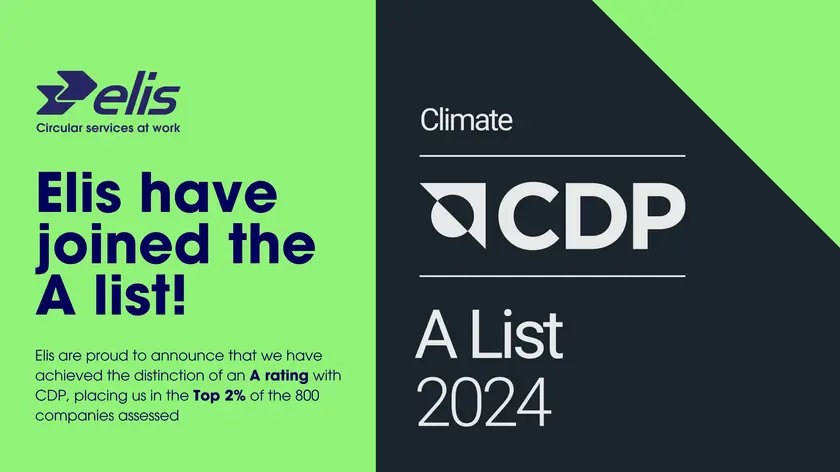News
Elis receives an A rating on the CDP Climate Questionnaire, joining the prestigious "A-List"
Elis takes a significant step forward in 2024 by receiving an A rating on the CDP (Carbon Disclosure Project) Climate Questionnaire. This distinction confirms the Group’s commitment to fighting climate change and the benefits of its circular model. It places the Group among the most high-performing and transparent companies on climate issues.
This recognition places Elis among the highly selective CDP "A-list," which acknowledges the most committed companies.

Elis CEO Xavier Martiré states : "We are honoured to be part of the CDP 'A-List'. This recognition highlights the benefits of our circular economy model in addressing current environmental challenges, while also acknowledging our ongoing commitment and the daily efforts of our teams in the fight against climate change."
Within the CDP classifications range from A (the highest rating) to D-, of the 24,800 companies evaluated, only 2% received an A rating in 2024. Our A rating positions Elis as a leader and testifies our commitments to our CSR objectives, highlighting the benefits of our circular economy model, which prioritises sustainable alternatives with a lower environmental impact.
In addition to its rental and maintenance model, which helps limit resource consumption and extend product lifecycles, Elis is committed to an ambitious climate approach aligned with the Paris Agreements.
We are committed to:
- Reducing our Absolute Scope 1 and 2 Greenhouse Gas Emissions by 47.5% by 2030, compared to 2019;
- Reducing our Absolute Scope 3 Greenhouse Gas Emissions by 28% from the purchase of goods and services, fuels and energy upstream, transport and distribution upstream, commuting, and end-of-life of sold products (also compared to 2019).
The CDP is an independent organisation that annually assesses companies on their climate commitment: strategy, risk and opportunity management, objectives, progress, actions, value chain engagement, and integration across all business dimensions. Its evaluation is based on a rigorous questionnaire, providing valuable data on CO₂ emissions and the climate maturity of companies.
*The objective includes emissions related to land use and absorptions from bioenergy feedstock. Scope 2 emissions are reported on a market-based basis. Scope 1 (direct emissions) mainly associated with the consumption of gas, fuel, etc.; Scope 2 (indirect emissions) associated with the consumption of electricity or steam; Scope 3 (other indirect emissions) associated with other emission categories: purchases, upstream.
Need information? Contact us!
*Required fields
Contact details
Your legal name is the name that appears on your official documents.





